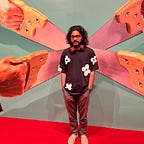The Future
Two decades from now, a global citizen writes an account of the new hyper-globalized world. Following is a synopsis of his work.
Globalization has heralded a new period in the history of the state. The state still exists but the powers of the state have waned. The sub-national government authorities and the roles of non-state bodies have greatly amplified. A group of states no longer has a monopoly. We now live in a Non-state World.
In a Non-state World, non-governmental organizations (NGOs), multinational corporations (MNCs), institutions of academic influence, the top 1% population, sub-national units such as megacities, work together and take charge in confronting global challenges.
The new world order is fueled by a group of transnational elite, educated at the same universities, working in many of the same multinational corporations or NGOs, and living in the same old neighborhoods.
They believe in globalization, but one that creates and supports personal initiative and empowerment. The “can-do” and “everyone-can-make-a-difference” spirit has empowered the rising middle classes around the world, which are increasingly self-reliant.
They don’t rely on “big” government, which have been controlled by long-time elites with vested interests. Hence, for the rising middle classes, working outside and around government is the way to liberation.
This new order agree on issues that are the major global challenges. For example, corruption has been at the root of what has sustained the old system, which has impeded progress of the world as a whole.
The new elites believe in humanity as a way of enforcing fairness and opportunity for all, a healthy and safe environment for ensuring quality of life.
They are crusaders of human justice and the rights of women.
Technology has enabled all the non-state bodies, from businesses to charities to universities and think tanks, to spread globally.
No longer recognizable as American, German, or Chinese, the global citizens have landed a blow to central governments — particularly the remaining authoritarian ones.
Authoritarian regimes — whose main objective is to establish the primacy and control of the central government — struggle to operate in this world.
Global governance institutions that are incapable of adapting to the more diverse and widespread distribution of power are also less likely to thrive.
Multinational businesses, IT communications firms, international scientists, NGOs, and groups that are used to cooperating across borders thrive in this hyper-globalized world where expertise, influence, and agility count for more than “power.”
In this world, the scale, scope, and speed of urbanization — and where key regulators can succeed in managing these challenges — are critical, particularly in the developing world. National governments that stand in the way of these clusters will fall behind.
Terrorists and criminal networks who aim to take advantage of the confusing shifts in regimes, still pose a threat but by being united, every small scope of terrorism is being negated by citizens fed up with violence.
When the old world failed to tackle the food and water issues, the megacities have sought their own solutions. To deal with food riots when they happen, many far-sighted authorities have decided to start working with farmers in the countryside to improve production. They are increasingly looking outside the countries where the urban centers are located to negotiate land deals. At the same time, “vertical farming” in skyscrapers within the cities is being adopted. This effort of each megacity looking after itself probably is the most efficient. Many people not living in well-governed areas remain vulnerable to shortages when harvests fail; those living in the better-governed areas can fall back on local agricultural production to ride out the crisis. At the same time, tapping into alternative sources of water and power have resulted in renewable and efficient handling of resources.
We can only hope the future looks hopeful.
